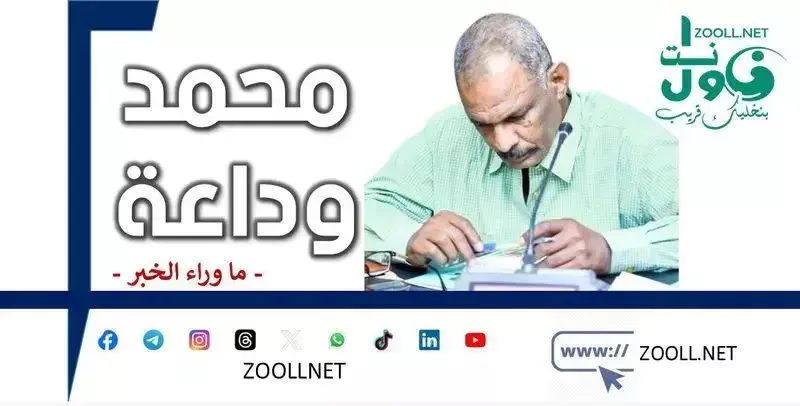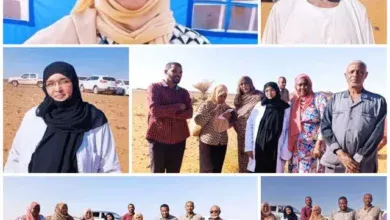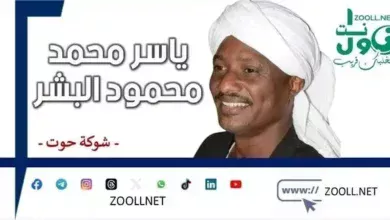Charter of Sudan.. The media – beyond the news – ✍️ Muhammad Wadaa

*Charter: Guarantee media freedom in accordance with international human rights standards*
*The Charter: The media in all their spaces are considered the fourth authority and exercise the complementary role of control over state agencies*
*The war highlighted the importance and danger of the media, in terms of stimulating national consciousness in the face of the logic of war*
*The media segment, especially non-governmental and print media, suffered devastating losses*
*Hundreds of journalists and media workers lost their jobs and were arrested, killed and displaced like all other citizens.*
*Charter: Develop the capacities of media professionals and provide them with professional protection and social security*
The Sudanese Charter Forces document devotes a paragraph to the media and its role in the war and post-war phases as follows: (The media, in all its spheres, is considered the fourth authority and exercises the role complementary monitoring of state agencies It must meet all its needs, strengthen and improve the capacities of its workers and provide them with professional protection and social security, guaranteeing media freedom in accordance with international human rights standards. rights contained in the International Covenant on Civil and Political Rights, the Universal Declaration of Human Rights and the African Charter on Human and Peoples' Rights, disseminating and realizing the values and foundations of social security among the components of the Sudanese people and maintaining a harmonious and positively interactive society that promotes human rights and dignity. and pride emotionally, psychologically and mentally, by spreading knowledge by eradicating illiteracy, providing human resources, professional qualifications, developing skills and abilities, and consolidating the values of emotional loyalty and belonging to the homeland through media freedom and the law. of expression, so as to contribute to the strengthening of freedoms and democracy, to the appropriation of the truth by citizens and to highlight cultural pluralism and diversity without discrimination, so as to strengthen mutual enrichment between them and to be a source of inspiration and strength. For the people of Sudan, commitment to professionalism, ethics and honor of the profession).
The war highlighted the importance and danger of the media, in terms of stimulating national consciousness towards the logic of war, and revealed the destructive role of the war media and the fierce media psychological warfare launched by the rebel forces and their supporters and allies. It became clear that the militia had well prepared its media plans to sow terror and fear among citizens, because it is fully aware that tipping the scales in its favor militarily is linked to the defeat of popular consciousness, and not only to his abilities. military machine, and although the national response has been delayed due to shock and the loss of media figures and journalists from their media platforms since April 15, the militia's methods of photographing the sites have prevailed, its occupation of the streets, and the representation of its presence in the military headquarters that were there before the war as the fall of these headquarters (the airport, the radio and television, the palace and part of the general command), in addition to the great deception carried out by the politicians and civilian forces who have allied themselves with the militias, starting with the slogan (The alternative to the framework is war), passing by the fact that the war is for democratic transformation, and passing in the war against the remains, and that it is a war against the state of 56,
These slogans fell, not only because of their misery, but also because of the brutal way in which the militia waged the war. She has committed all kinds of crimes stipulated in human laws. She stole, pillaged and occupied citizens' homes. civilian properties and hospitals and transformed them into military centers. He carried out ethnic cleansing and arrested thousands of citizens, kidnapped women and sold them, and used female captives for forced labor.
The official media apparatus gradually regained its health, and electronic and social media helped fill the void. Media professionals have helped confront the militia media machine, particularly with regard to psychological warfare. Its effect was largely canceled out, and the citizen regained confidence. in official media content supporting the armed forces,
The media professional segment, especially non-governmental and print media, suffered heavy losses. Newspapers have been closed since April 15 and their offices have been destroyed, vandalized and occupied by militias. , and were arrested, killed and displaced like all other citizens. However, their contribution remained abundant and clear in revealing and revealing the falsity and deception of the media discourse of the militia and its allies, given the great role played by the media during this period. During the war period and beyond, it is worthy to discuss what is said in this media charter with criticism, analysis and filling of similar gaps and transforming the vision contained therein into an action program .
Source link



